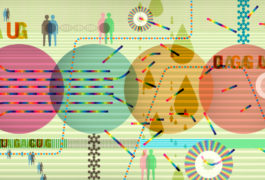Psychotropic drugs frequently prescribed for autistic people
About one in three autistic people in the United Kingdom is prescribed drugs designed to alter brain function.

About one in three autistic people in the United Kingdom is prescribed drugs designed to alter brain function.

Autism is predominantly genetic in origin, but a growing list of prenatal exposures for mother and baby may sway the odds.

Autism results from an interplay between genetics and the environment, but it has been tough to nail down the environmental factors involved.

Taking antidepressants during pregnancy is unlikely to raise the risk of having a child with autism.

Boosting the levels of the chemical messenger serotonin makes mice that model autism more social — and brings new hope to a shelved theory in autism.

Adults on the spectrum frequently have a range of other conditions — but they rarely get the help they need.
A prospective study shows that antipsychotics mess up metabolism, autism is tied to a doubled risk for food allergies, and a report reveals pervasive sexual harassment in science.

Epilepsy in infancy and the use of prescription medications during pregnancy are the strongest of 29 known risk factors for autism in a child.
Autism prevalence plateaued for the years 2014 to 2016, a review finds no evidence that herbal therapies for autism work, and a panel of four proteins in blood may distinguish children with autism.

We waded through the sea of autism studies published in 2017 and spotted several themes.